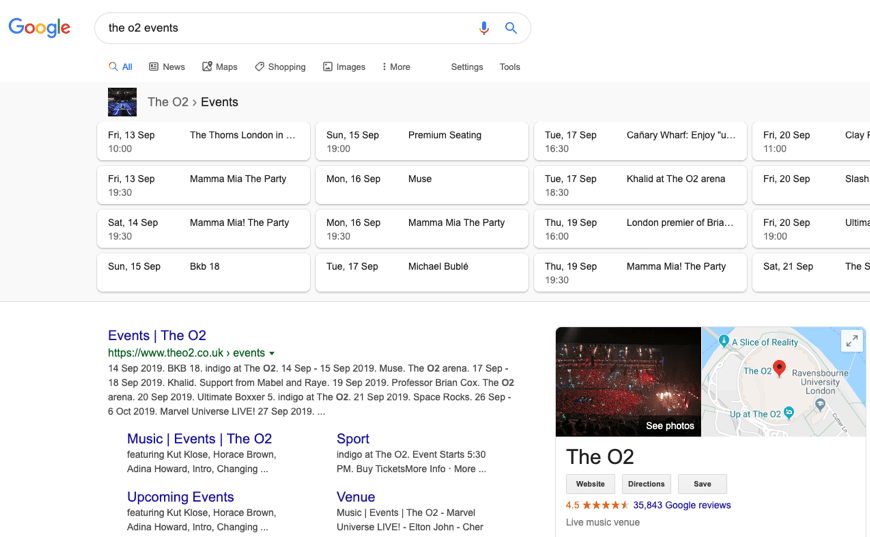Before we talk about Clearing 2020, we need to take a look at 2019. This year set a new benchmark with 58,840 students from the UK placed at university through Clearing and Adjustment – the highest number since records began in 2010! (Figures from UCAS)
This is a 9.2% increase on last year and a 62% rise compared to 2010. It’s undeniable; for many, Clearing has become a key part of the student journey to university.
Not only was 2019 a record-breaking Clearing, but it was also a year of firsts:
Looking Ahead: What Will Happen in Clearing 2020?
So that’s 2019, but what will Clearing 2020 be remembered for? We know it’s early, but we’ve put together 6 predictions for next year. All that’s left to do now is wait and see!
1. Failing to Plan Will Be Planning to Fail
This year saw Clearing open early for the first time, on the 5th of July. It was also the year that the new UCAS online self-release function was introduced.
For universities taking part in Clearing, these new developments place even greater emphasis on the need for early planning of your marketing and advertising strategy.
When putting together your strategy for 2020, make sure to take into account:
- That advertising and marketing communications must begin even earlier than in previous years to align with the earlier opening date
- That there are now two “key Clearing dates” (when Clearing opens at the start of July and A-level results day mid-August)
- The need for appropriate messaging around self-release
2. Voice Search Will Be a Big Player
This year saw a higher number of voice searches used by prospective students during Clearing than in 2018. We expect this number to grow even larger in 2020, particularly as Google is aiming for 30% of all searches to be made by voice next year.
The fact that students aren’t just searching by text has implications for your advertising strategy. Make sure to use the following tips to get ahead. The good news is that this advice will boost your SEO performance regardless of whether searches are made by voice or not!
- Feature straight-forward language in your adverts and on your website
- Provide direct answers to specific questions
- Target long-tail keywords as that’s the way we search by voice
Short-tail example: maths clearing
Long-tail example: maths places available through clearing
- Optimise content to be current, avoid duplicate pages and update outdated contact info
- Use schema markup and rich snippets on your website to help search engines provide more informative results for users
These tell the search engine to display information in a certain way. For example, the O2 have used schema markup on their site to tell Google about upcoming events. This has enabled Google to return the SERPs in this format:

3. The Number of Direct Applicants Will Keep Growing
Of the 58,840 UK students placed through Clearing this year, 1 in 5 waited until after they received their A-level results before submitting an application through UCAS.
The number of direct applicants has risen every year since records began in 2010, proving that the traditional student journey has changed. More and more students are deciding against submitting an initial application for the January deadline. Instead, they’re waiting until later in the year to consider their options.
Institutions must react accordingly, particularly when it comes to the messaging used around Clearing. Direct applicants don’t have the same concerns during Clearing as students that have already applied. For example, there’s no worry that they won’t meet their current offers. If you don’t acknowledge and address direct applicants in your Clearing communications and messaging, you could risk isolating 20% of your target audience.
4. Personalised Messaging Will Be Key
So, it’s clear that future messaging around Clearing needs to take into account the increasingly large numbers of direct applicants. But that’s not all; there are other audience segments that require nuanced communications, such as:
- “Traditional” Clearing students – those who didn’t achieve the A-level grades required for their chosen university
- Self-release students – those who decline their chosen university to apply elsewhere
- Mind-changers – those who aren’t sure about their chosen university anymore
- Adjustment students – those who achieved better grades than expected and want to see what else is available to them
Ideally, you would target all of these groups separately with messaging tailored to their specific situation, their wants, and their concerns.
5. There Will Be More Clearing Places at Russell Group Universities
This year, 18 of the 24 Russell Group universities took part in Clearing, each with one or more places available.
Most notably, Russell Group institutions drastically dropped their entry requirements to attract more students. For example, Exeter University offered History places to students who achieved BCC in their A-levels, despite asking for AAB or ABB for the same course earlier in the year. Similarly, Liverpool University accepted applicants with BBC through Clearing (lower than the usual criteria of ABB).
These same Russell Group universities also all took part in Clearing 2018, proving this year wasn’t a one-off. We don’t see this changing in 2020. In fact, we predict that even more of the 24 Russell Group institutions could participate in Clearing next year as the competition for students remains fierce.
6. For International Students, You’ll Need to Look Outside the EU
The number of EU students going to university in the UK in 2019 has fallen almost 13% year-on-year, with the figures for the last three years as:
With uncertainty from Brexit still looming, it’s unclear how many EU students will apply for university in the UK next year and whether there will be a drop in numbers again. Perhaps in 2020, universities will need to look to other countries to find international students…
For example, the UK saw a significant increase of 20% in the number of applicants from China this year. Arguably, the impact is largely due to America’s trade war with Beijing causing a decline in the number of Chinese students applying to study in the US.
This month, the decision was made to reverse Theresa May’s controversial policy on post-study visas for international students. It’s now been confirmed that from 2021, international students who enrol in an undergraduate, postgraduate or PhD course in the UK will be able to stay in the country for two years after they graduate, rather than the current period of four months. Although perhaps not for 2020, this could have a significant impact on the numbers of EU and international applicants from 2021 onwards.
Clearing 2020: Anything Could Happen!
With our predictions made, it will be interesting to look back next year and see whether we’re right or not. To be honest, anything could happen between now and Clearing 2020!
In the meantime, get in touch if you’d like help with your marketing and advertising strategy for 2020 recruitment. This is the perfect time to put together a solid plan to ensure optimal performance next year.
Have you seen the 10 creative marketing trends used by institutions in Clearing 2019?





